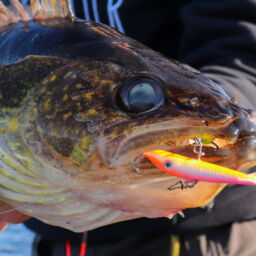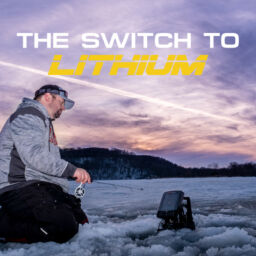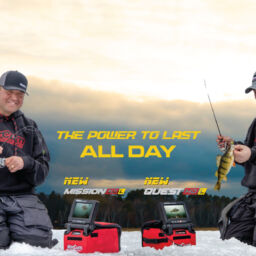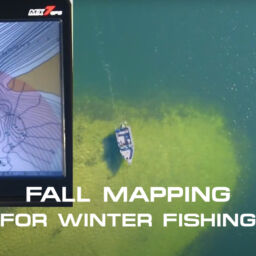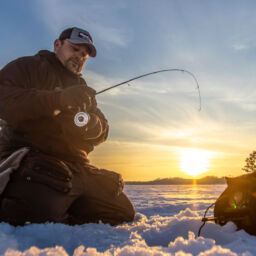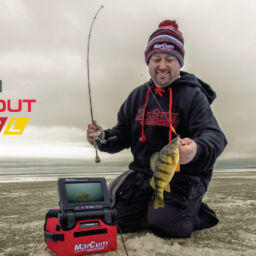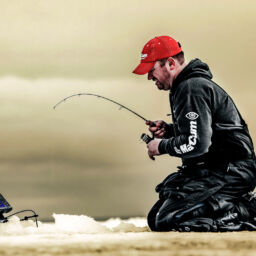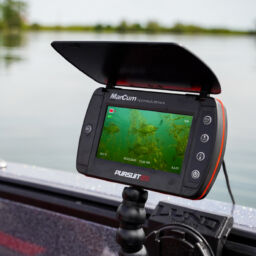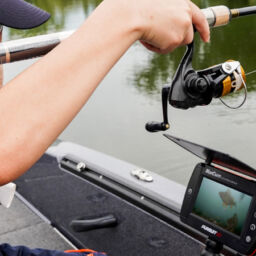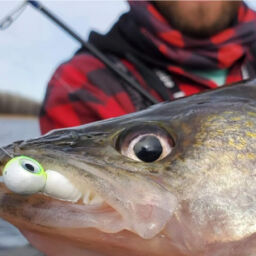Early Ice Essentials with joel nelson
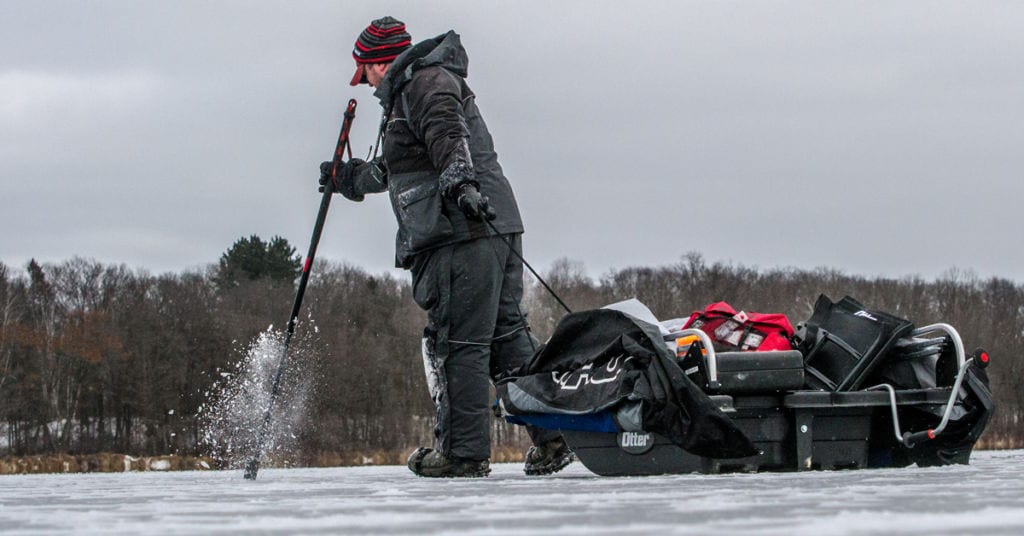
“They’re right where we left them,” I blurted while quickly dropping another small sucker to whoever was stealing them below. It was a private thought that worked its way out on last season’s first-ice-foray. I was pretty certain they were walleyes, as I’d fished them in the months leading up to ice. They remained right off of a point on the first shoreline break where we’d had two flags fly before drilling the rest of the holes. We jigged up a few perch and walleyes amongst those tip-ups right at dark, before gingerly creeping back to shore. We were on solid ice, a good 6 inches of it, but you never can be too careful. Even when well-prepared, I’m not the guy creeping on a few mere inches like I once was. Age, kids, and some dodgy experiences will do that to you.
“Comparison is the thief of joy,” said Teddy Roosevelt more than a century before social media would commercialize and so readily invite it. At this point in the season, if you consume any digital content at all, you’ve probably already seen people walking on ice. They may be in Alberta, the high rockies, or even lowland portions of northern Minnesota. Chances are, you’re not fishing the lakes they might be, and chances are higher that even so, your ice-envy may be growing by the minute. Take a deep breath, get your deer gun ready, and spend some time chasing other fall pursuits. Ice will be there when you come out of that wormhole. Freeze-up this early can be short-lived should the mercury rise back to more average values, and extremely early ice usually suffers that fate. Again, those few early ice fall-throughs, whether personal or publicized tend to shape your thoughts on the matter.
They also inform you as to what essentials you need for any first ice trip. As you might imagine, they’re a small kit with safety equipment that can be lifesaving. Nowadays, it’s easier than ever to buy a few products off the rack to protect you should ice give way. I’ve pushed a canoe out with rope tied around my waist, but here are some better options.
Float Suit – There’s no excuse not to own one these days, as performance has dramatically risen, with value-minded options galore. They’re flexible, worn tackle bags as well, with quite a bit of thought and ergonomics going into their design. They shed water, rather than wick it up your leg like the coveralls of old, and really make ice fishing that much more enjoyable. You won’t know they float until you need them to, and that’s fine by me.
Spud Bar – At the start of every season, I never leave the truck without a spud bar, and no spud is safe without “tuning-it.” Take any fish ruler, and start swinging that bar at the ice. Take good strong strokes, then physically measure inches of ice and how many hits in the same place until you start to see water. On average, each swing can remove 1” of ice, but every spud and person is different. For me, an aggressive chisel end spud bar showing water on 1 or even 2 swings is a no-walk-zone. It should take a good 3 or 4 hard swings with these until I’m finding the 4+ inches that make me comfortable.
Spud anything that looks different than what you just walked on. Spud the milky ice, the black ice, the snow-covered ice, and the stacked ice. All of it tends to have slightly different thicknesses early, and you never know where there could be a spring, inlet, or other unwater current. Eventually, you’ll get better at “reading” that ice, but there’s still no substitute for a good spudding.
Picks – Put them around your neck and forget about them. No matter how many times they get in your way, move them out of the way. Early ice can be some of the worst to climb back onto, especially when it’s black. Add water to that surface and there’s no substance slicker.
Cleats – Speaking of slippery, you should really have something on your feet to keep grip. Boot treads won’t cut it. The worst I’ve ever seen was a foggy first ice trip on black ice where I was the only one who didn’t have them. I literally couldn’t move out there, it was ridiculous. Never again. After seeing some ice injuries in person and even a concussion, there’s more reasons than simple grip to be wearing these first ice.
Throw Rope – There’s convenient ones all ready and in a bag for you these days, but it can be any kind of rope you’d like. Preferably, it would be 25 feet in length or longer, and have some relatively heavier item tied to the end for accurate throwing. While I’ve never had to use mine, I can see plenty of scenarios where it would be preferable to finding a stick on shore, an auger bit, or other long item to pass a soaked friend after they’ve gone through.
Before you start checking all your favorite haunts, remember that we’ve still got a few weeks to go. It’s a good time to prep your gear, get a few last items, and think about lakes you’d like to hit. If you still have open water, there’s time to find first ice spots. If not, take your time and be safe out there before you start swinging that spud bar.



